Top Trending Acquisitions & Mergers News & Highlights


Invest in six mid-cap stocks with up to 47% upside potential from various sector groups to learn to deal with volatility.
These are unusual times, and they probably will be for a while. Think about the events of the last five days alone.The US Supreme Court overturned President Trump's tariff policy on Friday, Day One. The unpredictable Trump responded by enacting a 10% import tax on all goods. He increased the fee from 10% to 15% on Day Two, which was within 24 hours. For investors looking for growth potential without the usual volatility of small-cap stocks, mid-cap businesses can offer a sweet spot. These businesses are typically growing, gaining market share, and innovating, all of which can result in a significant increase in stock price.Market research archives
Published 25 Feb 2026 05:51 PM
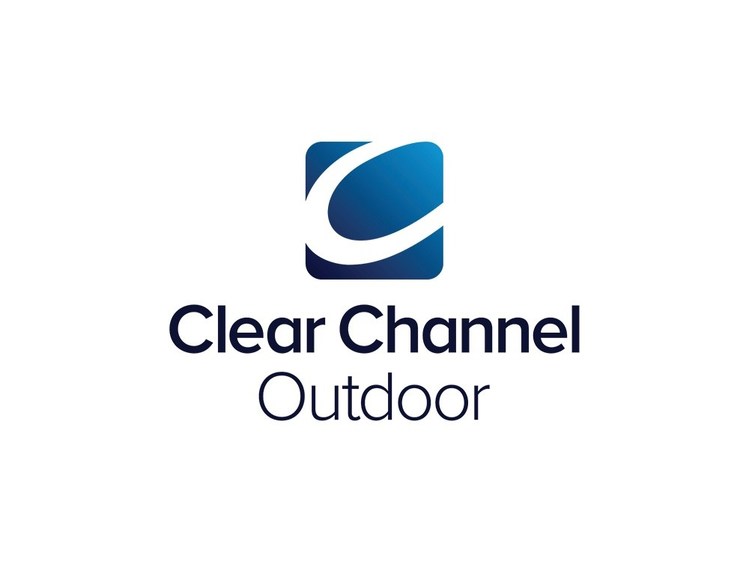

Mubadala Capital and TWG will purchase Clear Channel Outdoor for $6.2 billion.
According to the business, Apollo Global Management funds have committed to investing preferred equity in the sale, while Mubadala Capital and TWG Global would provide equity financing for the transaction.A 45-day "go-shop" period is included in the agreement, according to Clear Channel Outdoor, which enables the business to request alternative takeover offers. Clear Channel Outdoor Holdings announced Monday that it had reached an agreement to be purchased by Mubadala Capital, in collaboration with TWG Global, for a sum of $6.2 billion. According to the agreement, shareholders of Clear Channel Outdoor would get $2.43 in cash per share, which is 71% more than the company's unchanged share price, the statement stated.
Published 10 Feb 2026 05:50 PM


Tax Question: Calculating capital gains tax on the sale of post-merger stock bl-premium-article-image
You originally paid ₹72,800 (700 shares * ₹104 per share) for the shares of Allahabad Bank that you purchased in 2013. After Allahabad Bank and Indian Bank merged in 2020, you were given 80 shares of Indian Bank instead of the initial 700 shares of Allahabad Bank.In 2013, I bought 700 shares of Allahabad Bank at an average price of ₹104. I received 80 shares of Indian Bank following the bank's 2020 merger. What is the price of the shares I must purchase in order to calculate my capital gain or loss if I decide to sell these shares right away?You originally paid ₹72,800 (700 shares * ₹104 per share) for the shares of Allahabad Bank that you purchased in 2013. After Allahabad Bank and Indian Bank merged in 2020, you were given 80 shares of Indian Bank instead of the initial 700 shares of Allahabad Bank.The nature of capital gain shall be Long term capital gain as the period of holding shall be calculated from the original share purchase, and not from the date of merger
Published 22 Dec 2025 10:30 PM


This Diwali, OOH ad sales increase by 20%, while data-driven campaigns increase DOOH share by 24%.
This year's Diwali brilliance extended beyond diyas and fireworks, illuminating billboards, computer screens, and Indian cityscapes. Brands transformed the outdoors into a canvas of color, emotion, and commerce by painting the streets with joyous tales in both Tier-II communities and busy metropolises. The outcome? For the Out-of-Home (OOH) advertising sector in India, this was one of the busiest holiday seasons to date. Due to early holiday planning, daring creative executions, and a swift transition to digital and data-led outdoor solutions, the industry saw impressive double-digit growth as consumer sentiment skyrocketed and advertiser confidence returned in full force.The OOH sector has grown significantly over this holiday season, which is indicative of both the restored vigor in consumer markets and economic optimism. Vaishal Dalal, co-founder of Excellent Publicity, emphasized this momentum and noted that the industry's growth trajectory is still strong. This holiday season, the OOH sector has experienced strong double-digit growth. OOH advertising revenues increased steadily across the country, from ₹4,140 crore in 2023 to ₹4,650 crore in 2024, and are expected to surpass ₹5,200 crore in 2025. The entire OOH ad expenditure increased by more than 15–20% year over year during Diwali, thanks to robust seasonal campaigns in industries including retail, FMCG, consumer durables, automotive, and BFSI."Internal estimates indicate a ~40% YoY increase in Diwali-related OOH bookings at Excellent Publicity, surpassing the industry average," he added. Early festive planning, strong advertiser confidence, and nearly full occupancy across premium billboard sites were credited with this spike.Vikas Nowal, CEO of Interspace Communications, echoed this pattern, stating that the company also experienced a notable Christmas bump. Our OOH company has performed well throughout the Diwali holiday season this year, with a projected 20% increase in sales over the previous year. Higher consumer involvement and greater advertising confidence throughout the festival period are reflected in this uptick," he continued. With companies aiming for both quantifiable engagement and widespread effect, both leaders concur that the OOH medium has become one of the most dependable and prominent options for festive storytelling.
Published 21 Oct 2025 07:55 PM


Acquisitions & Mergers
Acquisitions & Mergers are the latest trend in the globe.


Invest in six mid-cap stocks with up to 47% upside potential from various sector groups to learn to deal with volatility.
These are unusual times, and they probably will be for a while. Think about the events of the last five days alone.The US Supreme Court overturned President Trump's tariff policy on Friday, Day One. The unpredictable Trump responded by enacting a 10% import tax on all goods. He increased the fee from 10% to 15% on Day Two, which was within 24 hours. For investors looking for growth potential without the usual volatility of small-cap stocks, mid-cap businesses can offer a sweet spot. These businesses are typically growing, gaining market share, and innovating, all of which can result in a significant increase in stock price.Market research archives


Mubadala Capital and TWG will purchase Clear Channel Outdoor for $6.2 billion.
According to the business, Apollo Global Management funds have committed to investing preferred equity in the sale, while Mubadala Capital and TWG Global would provide equity financing for the transaction.A 45-day "go-shop" period is included in the agreement, according to Clear Channel Outdoor, which enables the business to request alternative takeover offers. Clear Channel Outdoor Holdings announced Monday that it had reached an agreement to be purchased by Mubadala Capital, in collaboration with TWG Global, for a sum of $6.2 billion. According to the agreement, shareholders of Clear Channel Outdoor would get $2.43 in cash per share, which is 71% more than the company's unchanged share price, the statement stated.


Tax Question: Calculating capital gains tax on the sale of post-merger stock bl-premium-article-image
You originally paid ₹72,800 (700 shares * ₹104 per share) for the shares of Allahabad Bank that you purchased in 2013. After Allahabad Bank and Indian Bank merged in 2020, you were given 80 shares of Indian Bank instead of the initial 700 shares of Allahabad Bank.In 2013, I bought 700 shares of Allahabad Bank at an average price of ₹104. I received 80 shares of Indian Bank following the bank's 2020 merger. What is the price of the shares I must purchase in order to calculate my capital gain or loss if I decide to sell these shares right away?You originally paid ₹72,800 (700 shares * ₹104 per share) for the shares of Allahabad Bank that you purchased in 2013. After Allahabad Bank and Indian Bank merged in 2020, you were given 80 shares of Indian Bank instead of the initial 700 shares of Allahabad Bank.The nature of capital gain shall be Long term capital gain as the period of holding shall be calculated from the original share purchase, and not from the date of merger


This Diwali, OOH ad sales increase by 20%, while data-driven campaigns increase DOOH share by 24%.
This year's Diwali brilliance extended beyond diyas and fireworks, illuminating billboards, computer screens, and Indian cityscapes. Brands transformed the outdoors into a canvas of color, emotion, and commerce by painting the streets with joyous tales in both Tier-II communities and busy metropolises. The outcome? For the Out-of-Home (OOH) advertising sector in India, this was one of the busiest holiday seasons to date. Due to early holiday planning, daring creative executions, and a swift transition to digital and data-led outdoor solutions, the industry saw impressive double-digit growth as consumer sentiment skyrocketed and advertiser confidence returned in full force.The OOH sector has grown significantly over this holiday season, which is indicative of both the restored vigor in consumer markets and economic optimism. Vaishal Dalal, co-founder of Excellent Publicity, emphasized this momentum and noted that the industry's growth trajectory is still strong. This holiday season, the OOH sector has experienced strong double-digit growth. OOH advertising revenues increased steadily across the country, from ₹4,140 crore in 2023 to ₹4,650 crore in 2024, and are expected to surpass ₹5,200 crore in 2025. The entire OOH ad expenditure increased by more than 15–20% year over year during Diwali, thanks to robust seasonal campaigns in industries including retail, FMCG, consumer durables, automotive, and BFSI."Internal estimates indicate a ~40% YoY increase in Diwali-related OOH bookings at Excellent Publicity, surpassing the industry average," he added. Early festive planning, strong advertiser confidence, and nearly full occupancy across premium billboard sites were credited with this spike.Vikas Nowal, CEO of Interspace Communications, echoed this pattern, stating that the company also experienced a notable Christmas bump. Our OOH company has performed well throughout the Diwali holiday season this year, with a projected 20% increase in sales over the previous year. Higher consumer involvement and greater advertising confidence throughout the festival period are reflected in this uptick," he continued. With companies aiming for both quantifiable engagement and widespread effect, both leaders concur that the OOH medium has become one of the most dependable and prominent options for festive storytelling.


To improve hybrid cloud services, CCI approves Capgemini's complete acquisition of Singapore-based Cloud4C.
In order to strengthen its hybrid cloud and AI-driven enterprise products, the French IT giant, which has a sizable delivery base in India, had announced the deal in August.The request by French IT services giant Capgemini to fully purchase Singapore-based Cloud4C was accepted by the Competition Commission of India (CCI) on Tuesday.The move followed Capgemini's announcement in August of this year that it had inked a deal to buy Cloud4C, a pioneer in hybrid cloud platform services.According to an announcement from CCI, the proposed combination is related to Capgemini SE's purchase of all shares of Cloud4C Services Pte Ltd (Target 1) and Cloud4C Services Pvt Ltd (Target 2). The Capgemini group's ultimate parent company is Capgemini SE. In a post on X, the regulator stated, "Commission approves proposed acquisition of Cloud4C Services Pte Ltd and Cloud4C Services Pvt Ltd by Capgemini SE."Capgemini, a prominent multinational in consulting, digital transformation, technology, and engineering services, has its headquarters in Paris. One of the company's biggest delivery bases worldwide is India, where it is well-represented.


Why the largest automakers in the world are reconsidering their
The electric vehicle (EV) boom is slowing down globally. As governmental changes, costs, and consumer reluctance redefine the industry's future, major automakers are reducing their production and adopting hybrids after years of bold all-electric commitments.Although growth will be uneven, EVs will account for one in four worldwide auto sales this year, according to BloombergNEF's annual Electric Vehicle Outlook report. With more than half of all new automobiles sold in China being electric, the U.S. and Europe are facing declining demand and political unpredictability. In the meantime, reasonably priced EVs are driving historic growth in emerging economies like Vietnam and Thailand.Automakers are shifting their tactics to include hybrids and plug-in hybrids after previously promising entirely electric lines. A reconsideration is being compelled by declining sales, exorbitant battery prices, and inadequate infrastructure for charging. 1. A slower rate of consumer acceptance Mass-market consumers are still wary about EVs, despite early adopters' enthusiastic embrace. Enthusiasm has been tempered by range concern, expensive upfront costs, and uneven charging infrastructure, particularly in nations with weak charging networks or growing electricity bills. 2. Expensive batteries and a lack of materials The price of lithium, nickel, and cobalt—essential components of EV batteries—has fluctuated. Profit margins have been squeezed by this unpredictability, which has also reduced the financial appeal of EV production. Costs are still high when compared to internal combustion engine (ICE) and hybrid vehicles, even with the emergence of local battery plants. 3. Gaps in charging infrastructure The charging network is still sporadic outside of China and several regions of Europe. Long charging durations and a lack of fast-charging stations continue to deter consumers in the US and India. Automakers are concerned about generating EVs more quickly than the infrastructure can handle.
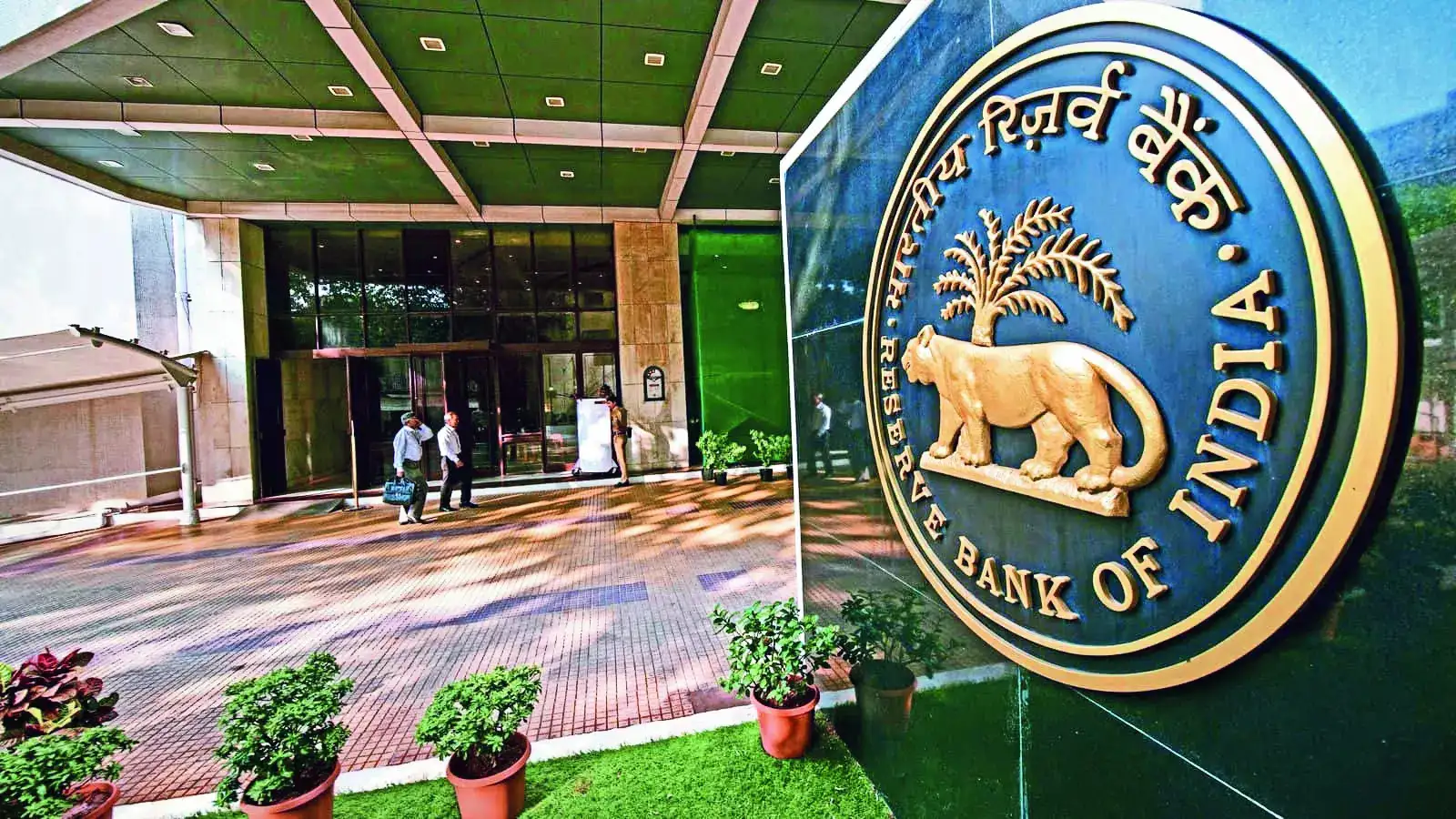

SBI looks to focus on deal financing within its own territory, as a draft regulation from the RBI proposes an even playing field for Indian banks
The State Bank of India (SBI), which has long funded the overseas acquisitions of Indian companies, believes it is prepared to support domestic mergers and acquisitions (M&As) as the Reserve Bank of India (RBI) looks into the possibility of allowing domestic lenders to do so.“Our outbound M&A financing involves Indian corporations acquiring foreign entities. Banks such as SBI possess extensive knowledge of acquisition financing,” C.S. Setty, chairman of the largest lender in the country, informed reporters during the Global Fintech Fest in Mumbai on Wednesday.Amitabh Chaudhry, the managing director and CEO of Axis Bank, stated on Tuesday that his bank aims not only to take part but also to challenge foreign banks that have been funding these acquisitions for several years, offering them “a run for their money.”On 1 October, in the course of detailing its review of monetary policy, the RBI unveiled a draft framework aimed at allowing domestic banks to underwrite acquisition financing for Indian corporates—something that has been desired by the banking sector for a long time. Regulatory constraints had effectively prohibited Indian banks from providing loans for share purchases in acquisition deals up to this point. Foreign banks, non-bank financial institutions, bond markets, and private equity largely took on those tasks.As the RBI aims to revise the regulations, domestic banks might soon benefit from a level playing field that is conditioned on safeguards, credit limits, and oversight standards. Market participants think this action could reveal value in the corporate funding life cycle. “Im Zuge des Geschäftsjahres 2024 beliefen sich die Werte von M&A-Transaktionen auf mehr als 120 Milliarden US-Dollar (ungefähr ₹10 lakh crore bzw. trillion). As per a note from SBI Research Ecowrap following the RBI's announcement regarding draft rules, if we consider that the debt component accounts for 40% of M&A and that banks could finance 30% of this, it results in a possible credit growth of ₹1.2 lakh crore.
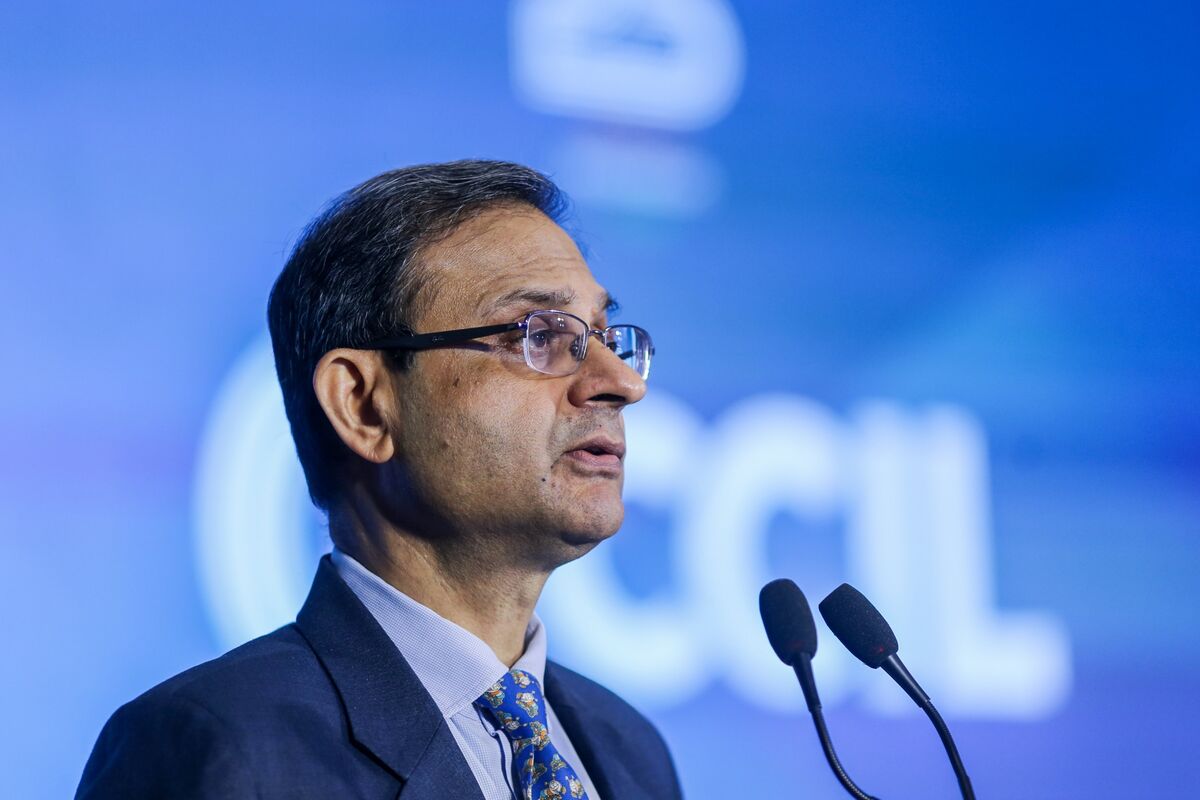

India is poised to launch a $40 billion M&A market accessible to local bank financing.
The Reserve Bank of India intends to allow domestic financial institutions to fund mergers and acquisitions, a decision anticipated to enhance the country’s deals market, which exceeds $40 billion. On Wednesday, after the central bank maintained interest rates, Governor Sanjay Malhotra announced in Mumbai that the Reserve Bank of India would soon suggest a framework allowing banks to directly finance corporate takeovers.The RBI announced a series of measures, one of which included the proposed easing of regulations. Additionally, it intends to abolish regulatory limits on lending against listed debt securities and to increase the limits for lending against shares. The moves drove the Nifty Bank index up 1.4%, reaching the day’s peak. The announcement comes as corporate appetite for M&A in India grows, driven by healthier balance sheets, years of debt reduction, and robust domestic demand. According to data compiled by Bloomberg News, the volume of domestic M&A in 2025 has reached nearly $41 billion, reflecting a slight improvement from the previous year.When asked about the easing of bank regulations, Malhotra stated at a news conference, “The goal will be to foster stability while also boosting competitiveness and promoting and enhancing economic growth.” At present, lenders are prohibited from providing direct funding for acquisitions because of regulatory and asset-quality issues. Most corporates usually seek assistance from non-banking financial institutions, foreign lenders, or both public and private markets. In recent years, bad loans in India’s banking sector have been significantly addressed, leading to gross non-performing asset ratios reaching their lowest levels in several years.It is anticipated by analysts that foreign banks will be affected by the new proposal. Bharat Gupta, founder of research services firm Au-RRange Ventures, stated, “If the RBI permits state-run banks to finance highly rated M&A transactions, public sector banks will capture market share from foreign banks that have been benefiting more from this regulatory arbitrage.”
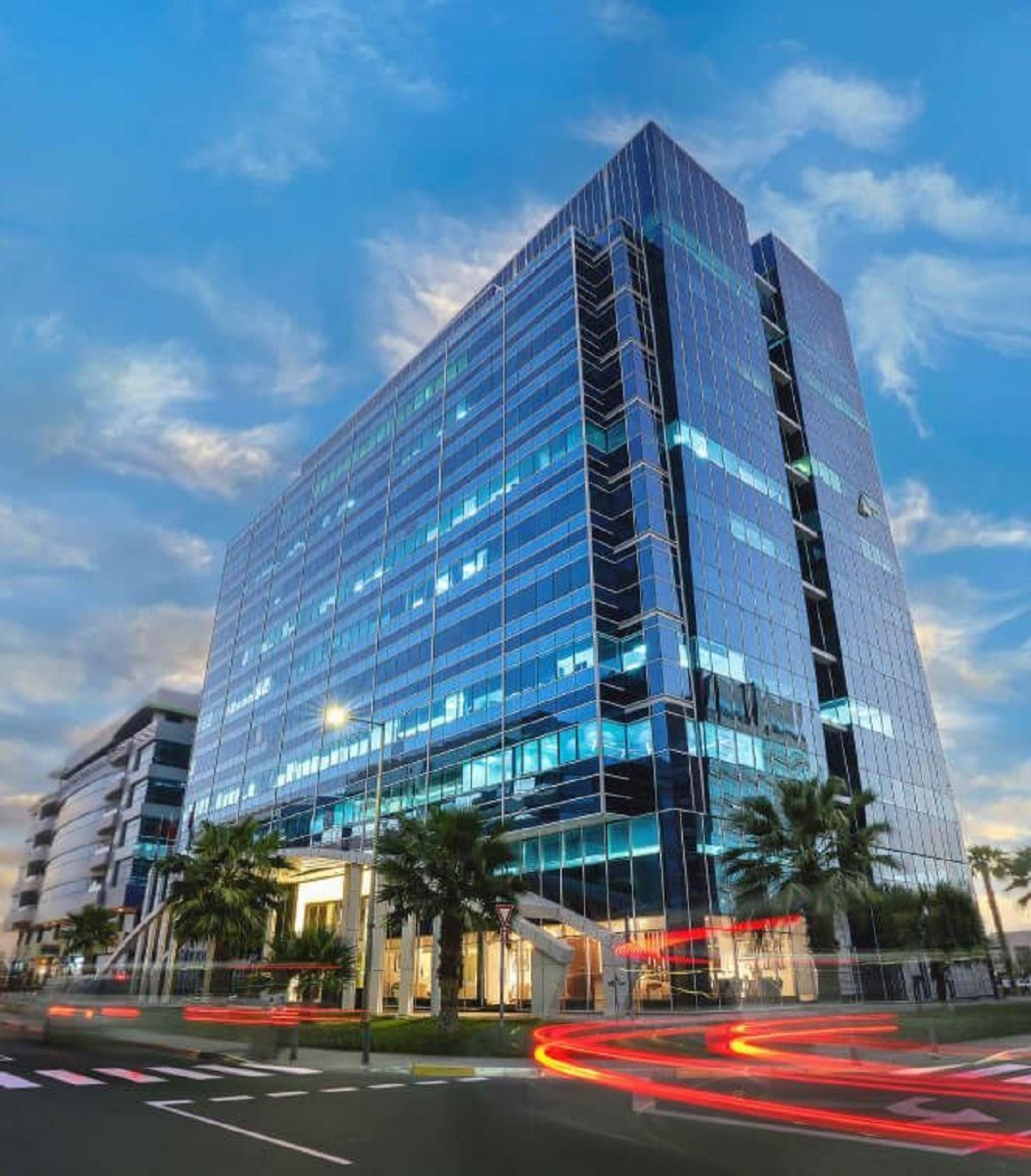

IHC of Abu Dhabi would pay ₹8,850 crore to acquire 43.5% of Sammaan Capital.
A division of Abu Dhabi's International Holding Company (IHC) has agreed to invest close to $1 billion (₹8,850 crore) for a 43.46 percent share in the non-banking financial company (NBFC), Sammaan Capital Limited (previously Indiabulls Housing Finance) announced on Thursday.The board of Sammaan Capital, an upper-tier NBFC, approved a preferential allotment of 330 million equity shares and 307 million warrants worth approximately ₹8,850 crore to Avenir Investment RSC Ltd, a unit of IHC, paving the way for the global investor to assume promoter status with a 43.46 per cent holding. Because of the ownership shift, the deal necessitates an open offer, which gives minority shareholders a way out in accordance with Securities and Exchange Board of India (Sebi) requirements.According to a joint statement from the two businesses, the transaction signifies IHC's debut in the financial services industry in India and the biggest primary capital infusion by a single investor into an NBFC in the nation.At its Thursday meeting, the board approved the issuing of 330 million equity shares at a price of ₹139 each, which is 18% less than the closing price of ₹169.55 on Wednesday. This amounts to around ₹4,587 crore. Additionally, it authorized 307 million warrants worth around ₹4,263 crore that could be converted into equity shares. Due to a national holiday, the stock markets were closed on Thursday.


Due to M&A issues, Boutique Investment Bank BDA eliminates jobs in China.
According to persons acquainted with the situation, BDA Partners has laid off a few investment bankers in Shanghai in order to deal with growing competition in China and transaction uncertainty. This makes the company the most recent financial services company to pull out of the second-largest economy in the world.According to insiders who asked not to be named because the information is confidential, the boutique business that specializes in mergers and acquisitions has fired five investment bankers headquartered in Shanghai and moved a couple to BDA's Hong Kong office. According to the persons, three senior bankers are remaining in Shanghai to work on ongoing mandates and close new business.BDA was established in 1996 and has offices in Singapore and New York. According to its website, it offers international customers M&A assistance with an emphasis on Asia, primarily for small-to-mid-sized deals. In addition to London, it maintains offices in Shanghai, Hong Kong, Tokyo, Seoul, Mumbai, and Ho Chi Minh City.In an email answer to a question from Bloomberg News, Simon Kavanagh, BDA's head of Greater China, stated, "BDA has been in China since 1999 and we remain strongly committed to M&A across China, Hong Kong, and Taiwan." We have senior bankers on the ground in Hong Kong and the PRC as part of our ongoing active coverage of China.Even though the number of transactions involving Chinese companies has increased this year, advisers still face several difficulties. These include more inbound investment, significant differences in buyer and seller valuations, fierce competition that is driving down prices, and challenges closing agreements due to regulatory and geopolitical issues, including tariffs.


As Tesla and Waymo intensify their robotaxi rivalry, Uber teams up with Momenta for driverless car experiments in Germany.
As it steps up its aspirations in the cutthroat robotaxi industry, Uber has announced intentions to start testing driverless cars in Germany next year in collaboration with Momenta, a Chinese self-driving technology company.Level 4 autonomous cars, which can function without human supervision in specified locations and under particular circumstances, will be the program's main focus.Notably, the ride-hailing behemoth has been gradually expanding its presence in autonomous mobility by working with well-known companies like Waymo, Lucid, and WeRide, all of which are owned by Alphabet. The rivalry in the market is getting more intense as Tesla continues to move forward with its own early-stage driverless taxi option.Regulators worldwide have been closely monitoring the commercial rollout of self-driving cars in the wake of high-profile mishaps involving autonomous systems, but progress has been slow.Through current automotive collaborations, Momenta, a provider of cutting-edge driver assistance software, reported that their technology is already installed in 400,000 vehicles. In May, Uber and Momenta first announced their partnership, which aims to expand robotaxi services outside of China and the US. The first significant step in that global approach is the upcoming German trials.Recall that Waymo has already declared its intention to introduce its robotaxi service in Dallas the following year, which is a calculated step to increase its presence in the US. The business will collaborate with Avis Budget Group, which will oversee the service's fleet operations.With this collaboration, Avis is directly funding a robotaxi fleet for the first time. As per the agreement, Waymo's smartphone application will be used by clients to book trips, and Avis will be in charge of infrastructure, readiness, car maintenance, and depot operations. With plans to eventually expand the partnership to other US cities, the corporations affirmed that the Dallas project is a part of a multi-year deal.


Dealmakers Have Their Busiest August Since '21, Reaching $1 Trillion in M&A
Following an August merger and acquisition frenzy, dealmaking during the normally quiet summer months has surpassed the $1 trillion mark.According to data provided by Bloomberg, since the beginning of June, companies have reported deals totaling $1.05 trillion. According to the data, it's the greatest total for this period since the record-breaking summer of 2021, when the pandemic triggered a boom in deals, and it's up 30% from a year ago.Union Pacific Corp.'s agreement to purchase railroad operator Norfolk Southern Corp. for more than $80 billion, including debt, was the largest deal announced so far in 2025. Additionally, Palo Alto Networks Inc. plans to pay roughly $25 billion to acquire cybersecurity firm CyberArk Software Ltd.Thanks to significant acquisitions like Thoma Bravo's $12.3 billion takeover of human resources software company Dayforce Inc. and CommScope Holding Co.'s $10.5 billion sale of a portion to Amphenol Corp., nearly $300 billion worth of deals have been signed in August alone. Ben Sibbett, head of Clifford Chance's Americas corporate practice, said the US administration shift has sparked agreements, even if the impact has been delayed. "That change has undoubtedly been a catalyst for the increased activity levels we are seeing, even though it has taken longer than we anticipated for M&A markets to pick up," Sibbett stated. "This summer has undoubtedly seen a spike in so-called mega-deals."While AT&T Inc. announced a $23 billion deal to acquire spectrum licenses from EchoStar Corp., Keurig Dr Pepper Inc. agreed to buy JDE Peet's NV for €15.7 billion ($18.2 billion), even in the normally slow week leading up to the US Labor Day weekend. The summer spike demonstrates how dealmakers have recovered well from a dismal start to the year, when excitement about M&A during US President Donald Trump's second term in office was tempered by the uncertainty surrounding his trade conflicts.As buyers and sellers argue over prices and general economic uncertainty persist, many procedures continue to be difficult. That’s kept the number of takeovers essentially steady compared to last year notwithstanding a few headline mergers. Nevertheless, businesses and their advisors are occupied with planning the upcoming wave of high-profile deals.
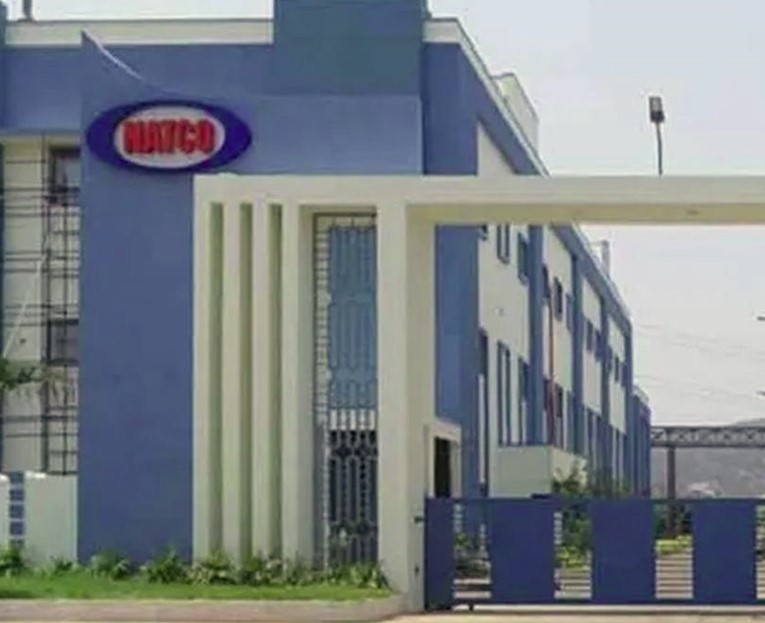

Natco to Acquire 35.75% of Adcock Ingram for ₹1,970 Cr
Indian drugmaker Natco Pharma has announced plans to acquire a 35.75% stake in Adcock Ingram, one of South Africa’s largest pharmaceutical companies, for ₹1,970 crore (around $236 million). This move marks a major step in Natco’s efforts to expand beyond India and reach more patients globally. The deal will be carried out through Natco’s subsidiary, Natco Pharma Africa (Pty) Ltd, and is still subject to regulatory approvals in South Africa and India. Once completed, this would give Natco a strong foothold in the South African market. Adcock Ingram is a well-established name in the region, producing a wide range of medicines including over-the-counter products, prescription drugs, and hospital treatments. For Natco, the partnership is expected to bring long-term growth and access to a broader market. In a statement, Natco said this investment aligns with its plan to grow internationally in a sustainable way. The deal also reflects a shift by Indian pharma companies toward building a stronger global presence, especially in emerging markets.


In a new agreement, Greenko founders plan to purchase a stake from Orix.
According to persons acquainted with the situation, the founders of Greenko Energy Holdings, an Indian clean energy producer, are still in the process of acquiring Orix Corp.'s ownership part in the business, even though the Japanese financial organization said that the deal would not proceed. According to persons who asked not to be identified in order to discuss sensitive things, Greenko co-founders Anil Chalamalasetty and Mahesh Kolli are modifying the deal structure to clear the path for the acquisition to move forward. According to Bloomberg Intelligence, Greenko's largest owner, with a 58% ownership, is Singapore's sovereign wealth fund, GIC Pte.The founders of Greenko had originally intended to finance half of the $1.46 billion purchase of Orix's 20% stake with cash, with the remaining portion to be financed through the issuance of convertible bonds by their firm, AM Green (Luxembourg). According to the people, the conditions are still negotiating and could change under the new structure, which would allow Greenko's founders to finance the acquisition with less cash and more convertible note investment. The size of a private loan supporting the sale has decreased from an initial $800 million to about $600 million, they added, in light of the expectations for the smaller cash portion.The loan will probably still rank among the biggest private credit agreements in India this year, where direct lending has exploded due to Prime Minister Narendra Modi's infrastructure push, which is driving up demand for money for everything from roads to solar power.


In collaboration with Kissandhan Agri Financial, Dvara Solutions
Through this partnership, Kissandhan will make use of Perdix, the main product of Dvara Solutions, which includes its co-lending module, platform services, reporting, loan origination system, and loan administration system.Kissandhan Agri Financial Services Pvt Ltd (Kissandhan), an RBI-regulated NBFC and a fully owned subsidiary of Sohan Lal Commodity Management Limited (SLCM), has established a strategic alliance with Dvara Solutions.Through this partnership, Kissandhan will make use of Perdix, the main product of Dvara Solutions, which includes its co-lending module, platform services, reporting, loan origination system, and loan administration system.More than 20 institutions currently use Dvara Solution's Perdix, which enables the management of more than ₹15,000 crore in assets. Kissandhan will improve its capacity to provide medium-term loans, group loans, farmer loans, and microloans against property (Micro LAP) by implementing Perdix. As of April 30, 2025, Kissandhan had already given out ₹3,263.99 cr in loans to farmers, affecting almost 7 lakh farmers and 37,185 women who received loans in the agricultural and related sectors. Through tight adherence to regulatory standards, the integration seeks to improve client experience, promote growth and operational efficiency, and streamline Kissandhan's end-to-end loan lifecycle operations.Our goal at Kissandhan is to empower farmers and business owners throughout the Agri and Rural ecosystem by offering financial solutions that meet international standards. This partnership demonstrates our dedication to building a cooperative ecosystem, increasing efficiency and transparency throughout the whole loan lifecycle, and giving our clients and borrowers peace of mind. By collaborating with Dvara Solutions, we will be able to provide customized financial products more quickly. According to Gurinder Singh Sehmbey, CEO of Kissandhan Agri Financial Services, "the Perdix platform integration will further streamline our lending processes, allowing us to provide customized loans to a wider range of segments, in rural eco system."


The bulk of the electric 3W firm Astro Motors is acquired by Remsons Industries.
The majority stake in Astro Motors Private Ltd, an electric three-wheeler manufacturing company, will be acquired for ₹14.22 crore in an equity and cash deal by Remsons Industries Ltd, an automotive OEM components manufacturer that supplies two, three, and four-wheeler vehicles, commercial vehicles, and off-highway vehicles in India and to automotive OEMs worldwide.The company Astro Motors is involved in the development and production of electric vehicles for micromobility, loaders, passengers, and cargo.With a facility in Chakan, Pune, Astro supplies gear technology with a range of 131 kilometers and payload capacity of 747 kg.The business, which intends to introduce its product this year, has hired dealers and is growing its network throughout India. "This purchase is a crucial step in our quest to expand in a sustainable way," stated Rahul Kejriwal, Executive Director of Remsons Industries. "We see a lot of room for growth in this segment as we continue to expand our portfolio. We also want to establish our presence in the rapidly growing electric three-wheeler segment while opening up new business opportunities," he continued.The majority (51.01%) of the electric three-wheeler firm Astro Motors has been purchased by Remsons Industries. The ₹14.22 crore transaction is made up of both cash and shares. Electric three-wheelers are developed and produced by Astro Motors for a range of uses, such as weight carrying, passenger transportation, and cargo.
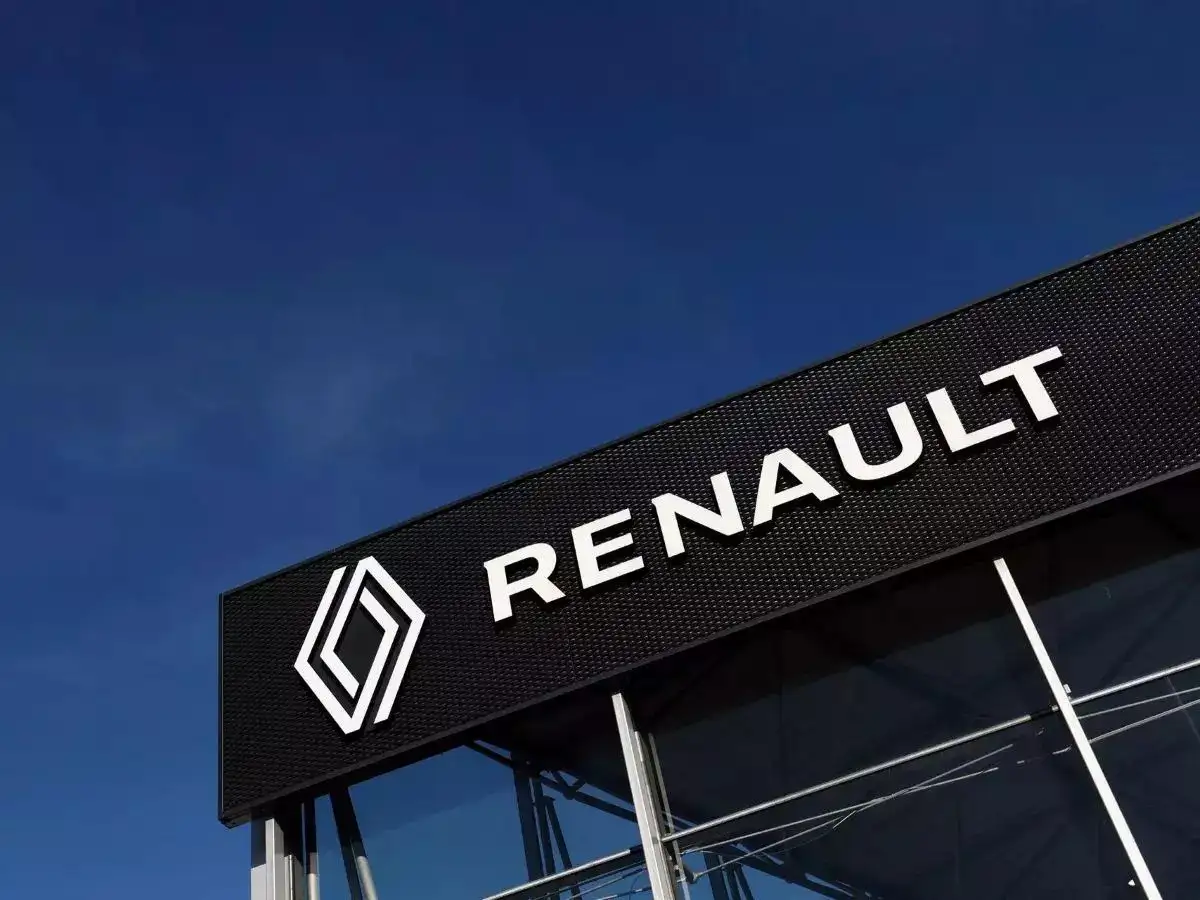

Renault will buy Nissan's 51 percent share in its Indian auto manufacturing division.
According to news agency Reuters, the Renault Group declared on Monday, March 31, that it intends to purchase the remaining 51% of Renault Nissan Automotive India Private Ltd, which is owned by the Japanese carmaker.Nissan controls 51% of the Chennai-based subsidiary Renault Nissan Automotive India Private Ltd, which began operations in 2010, according to the news report.At the beginning, the Japanese automaker owned 70% of the company, with the Paris-based Renault holding 30% as well. As part of the agreement to invest $600 million to manufacture six automobile models in India, Nissan's stake decreased from 70% to 51% in 2023.According to the agency report, Renault and Nissan also declared on Monday that they had reached an agreement to modify their long-standing relationship by allowing the decrease of their cross-shareholdings to 10% from the previous 15% levels. In the official statement referenced in the story, Renault CEO Luca de Meo stated, "As Nissan's primary shareholder and a longstanding partner within the alliance, Renault Group has a strong interest in seeing Nissan turn around its performance as quickly as possible."Nissan will no longer be bound by the agreement's revised terms to invest in Renault's electric vehicle (EV) division, Ampere. At first, the business intended to invest 600 million euros in the EV project.


Fachmann Berater and Cornerstone India Consulting have announced their merger.
Fachmann Berater Executive Search Pvt Ltd, situated in Chennai, and Cornerstone India Consulting, the Indian division of Atlanta-based Cornerstone International Group, a top 20 global executive search firm, have agreed to an operational merger.Cornerstone India Consulting's growth goals of becoming a leading executive search brand will be expedited by the combination. Additionally, according to a release, Fachmann Berater's clientele, which is dispersed across a variety of industries, and its unique skills will undoubtedly help Cornerstone achieve its operational and strategic goals, benefiting all of our stakeholders.Fachmann Berater Executive Search Pvt Ltd, situated in Chennai, and Cornerstone India Consulting, the Indian division of Atlanta-based Cornerstone International Group, a top-20 worldwide executive search firm, have agreed to an operational merger.


















